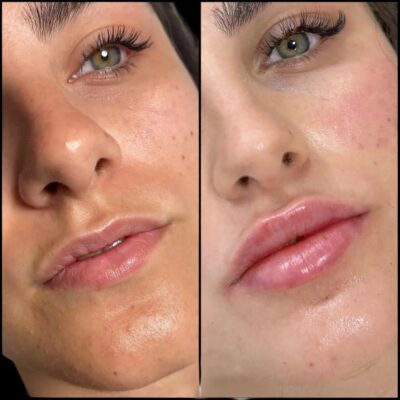In recent years, luxury hotels have gone far beyond offering plush bedding, gourmet dining, and stunning views. Travelers now expect a level of care and convenience that extends to their health and wellbeing. The hospitality industry is responding with innovative services that redefine what it means to stay in a high-end property. From on-demand medical consultations to personalized wellness programs, luxury hotels are transforming guest healthcare into a seamless, integral part of the experience.
Traditionally, travelers seeking medical attention would need to locate local clinics or hospitals, navigate unfamiliar systems, and deal with language barriers. This can be stressful, particularly for guests on vacation or business trips where time is limited. Recognizing this challenge, many luxury hotels now offer in-house healthcare options, including access to licensed physicians, nurses, and wellness experts. The convenience of such services allows guests to focus on relaxation and productivity without compromising their health.
One of the most remarkable trends is the availability of on-call doctors within the hotel itself. Guests no longer need to step outside the property to receive medical attention. For instance, a doctor at hotel Dubai can be summoned directly to a guest room, ensuring immediate care for minor illnesses, injuries, or even preventive consultations. This level of accessibility is particularly valuable in regions where visitors may be unfamiliar with local healthcare systems or where urgent care facilities are located far from tourist areas.
Luxury hotels are also integrating technology to enhance healthcare delivery. Telemedicine platforms enable virtual consultations with specialists anywhere in the world, giving guests access to expert opinions without leaving their rooms. Wearable devices and mobile apps are being used to monitor vital signs, track fitness, and even provide alerts for potential health issues. By combining personal attention with advanced technology, hotels can offer a level of healthcare once reserved for medical institutions.
Beyond emergency care, wellness programs in luxury hotels are now comprehensive and personalized. Guests can participate in tailored fitness routines, nutrition planning, and holistic therapies, all designed to support long-term health goals. Spa treatments, yoga sessions, and mindfulness workshops are being integrated into daily itineraries to promote mental and physical well-being. This shift reflects a broader understanding that healthcare is not solely reactive—it’s preventative and lifestyle-oriented.
Nutrition is another area where luxury hotels are making significant strides. Many properties employ in-house dietitians who design menus catering to individual dietary needs, allergies, or fitness objectives. Farm-to-table kitchens, organic offerings, and customized meal plans ensure that guests maintain proper nutrition during their stay. Some hotels even provide interactive cooking classes, allowing guests to learn healthy meal preparation techniques that they can continue after their trip.
The travel industry is also responding to the growing demand for medical tourism. Some luxury hotels collaborate with nearby medical centers to offer specialized procedures, wellness retreats, or rehabilitation programs. Guests can combine a vacation experience with elective medical care, ensuring comfort and discretion throughout the process. The integration of hospitality and healthcare in this way highlights the industry’s commitment to comprehensive guest experiences.
Mental health has gained particular attention in recent years. Luxury hotels now offer programs designed to reduce stress, improve sleep, and support emotional well-being. Meditation sessions, sound therapy, and private counseling are increasingly common, recognizing that mental wellness is as critical as physical health. For international travelers facing jet lag, anxiety, or work-related stress, having access to professional mental health support on-site can transform their stay from exhausting to restorative.
Staff training plays a crucial role in elevating guest healthcare standards. Luxury hotels invest in educating their employees to recognize health concerns, administer first aid, and respond promptly to emergencies. Housekeeping, concierge, and front desk personnel are often trained to identify early warning signs of illness or distress and coordinate immediate support. This proactive approach ensures that medical care is seamlessly woven into the guest experience rather than being an afterthought.
Another dimension of innovation is preventive health monitoring. Some hotels offer routine health assessments for guests, including screenings, blood pressure checks, and biometric analyses. These services allow guests to address potential issues before they escalate, giving peace of mind and encouraging healthier travel habits. Combining convenience with advanced diagnostics is a unique selling point that sets high-end properties apart in the competitive hospitality market.
Sustainability is also intersecting with guest healthcare. Hotels are increasingly aware that environmental health directly impacts personal wellness. Clean air systems, natural lighting, toxin-free materials, and green spaces contribute to overall well-being. Guests can enjoy a stay that nurtures their health while supporting environmentally responsible practices. This holistic approach reflects a new philosophy in luxury hospitality: health and comfort are inseparable from sustainability.
In addition to these services, luxury hotels are catering to families and vulnerable populations with specialized healthcare offerings. Pediatric care, elder support, and postpartum wellness programs ensure that every guest receives appropriate attention. By addressing the diverse needs of travelers, hotels are creating environments where everyone can feel safe, supported, and cared for.
The shift toward integrated healthcare is also influencing how hotels market themselves. Properties that provide accessible medical services, wellness programs, and preventive care now appeal to a broader clientele, including business travelers, international tourists, and long-term guests. Health-conscious individuals increasingly prioritize accommodation that supports their lifestyle, making guest healthcare a competitive differentiator in the luxury sector.
While traditional healthcare requires navigating hospitals and clinics, the luxury hotel experience brings medical care to the guest. The presence of a doctor at hotel Dubai or similar services worldwide reflects a growing trend where hospitality and healthcare converge. Guests can receive timely medical attention without disrupting their plans, demonstrating how hotels are redefining convenience, safety, and wellness in travel.
In conclusion, luxury hotels are revolutionizing guest healthcare by making it more accessible, personalized, and integrated into the overall experience. From on-demand doctors and telemedicine to holistic wellness programs and nutrition planning, the hospitality industry is reshaping what it means to travel with health in mind. By prioritizing preventive care, mental health, and sustainability, these properties offer more than just a comfortable stay—they provide peace of mind, well-being, and a new standard of care. As this trend continues, guests can expect that staying at a luxury hotel will not only be a pleasurable experience but also a proactive step toward better health.

